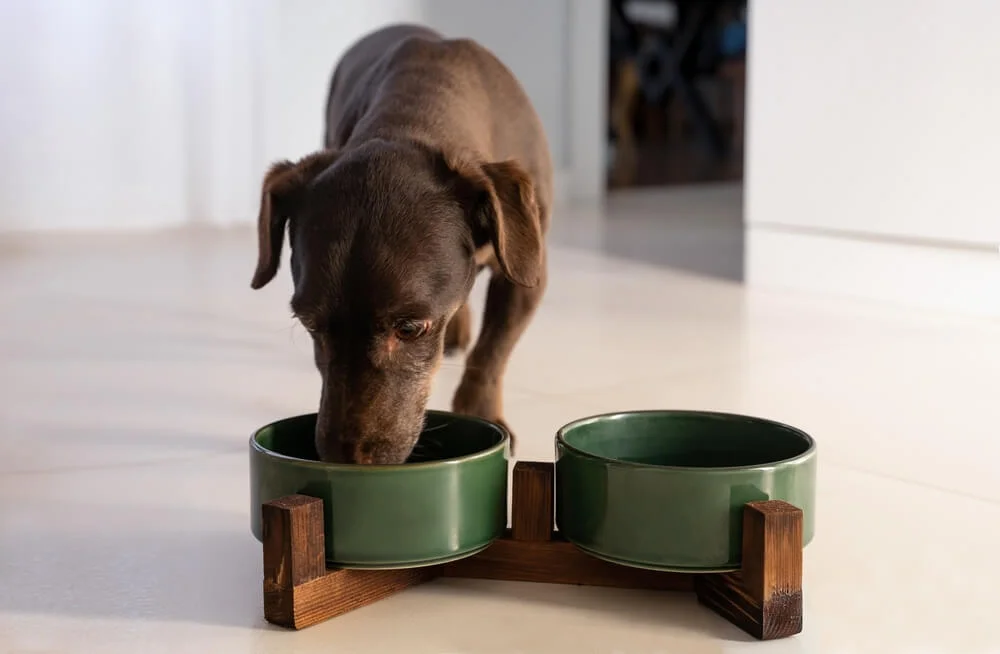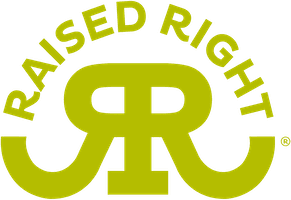
Many of you may have noticed your dog eating grass in the garden or vomiting up bile. This is a common occurrence in dogs and one of the biggest culprits of this is acid reflux. Just like humans, dogs get acid reflux too and this can be a really uncomfortable symptom for your doggy companion. There are multiple causes, treatments, and preventions of acid reflux in dogs and a huge component of this is the food that we feed our dogs. Nutrition is vital to keep our dogs healthy and this is even more important when it comes to acid reflux. We’ll discuss everything that you need to know now.
What is Acid Reflux in Dogs?
Dogs (just like humans) have acid and enzymes in their stomach to digest food, kill harmful bacteria, and maintain a healthy gut microflora. Anything that interferes with digestion can upset the balance of this. Acid reflux is when acid from the stomach goes back up into the esophagus. There is a sphincter between the stomach and esophagus to prevent backflow but if there is a lot of acid or if the sphincter is relaxed/damaged this can happen.
Stomach acid present in the esophagus can be really painful and uncomfortable for dogs. Not just that, it may also cause worrying symptoms such as;
- Retching
- Gulping
- Burping
- Bad breath
- Eating grass (nausea)
- Gurgling from tummy
- Reduced appetite
- Vomiting
- Regurgitation
- Weight loss
As you can imagine, these symptoms may cause dogs to be off form, lose weight, and have digestive issues. Along with that, regurgitation can lead to aspiration which can result in a potentially fatal aspiration pneumonia.
Also, if the acidic contents are sitting in the esophagus over a prolonged period they can cause conditions such as oesophagitis (inflammation of the esophagus), ulcers, and digestive issues.
What Causes Acid Reflux in Dogs?

Chronic vomiting may cause damage to the stomach and oesophageal sphincter allowing acidic contents to enter the esophagus.
Acid reflux can be caused by almost anything that upsets the tummy as this will likely upset the gut microflora and acid balance. There are some causes that can lead to acid reflux such as;
- Chronic vomiting – any condition causing acute or chronic vomiting may lead to acid reflux. Chronic vomiting may cause damage to the stomach and the oesophageal sphincter allowing acidic contents to enter the esophagus.
- Food intolerance/sensitivity – food sensitivities and allergies are very common in dogs. Many dogs are unable to tolerate the many preservatives and additives that are included in a lot of commercially available dog foods.
- Digestive issues – food should move easily through the stomach and intestines but sometimes this can slow down or stop altogether. Poor gut motility can lead to food sitting in the stomach which can cause indigestion and acid reflux. Common causes include stress, medications, blockages (e.g. bowel obstruction), and neurological conditions.
- Bowel issues – conditions affecting the gastrointestinal tract through inflammation (inflammatory bowel disease) or bacterial overgrowth (SIBO), cancers, or infections that may negatively affect the gut microflora and acid balance. Too much or too little acid can be harmful and both can lead to reflux.
- Drugs or anesthesia – certain drugs may be more likely to cause gastrointestinal signs such as vomiting or diarrhea (NSAIDs) so this is worth ruling out if your pet is on long-term medication and suffering from acid reflux. If your dog has had recent general anesthesia, they may have temporary acid reflux due to having a relaxed sphincter under anesthetic.
- Hiatal hernia – these hernias occur when part of the stomach bulges through the small opening (hiatus) in the diaphragm that is intended for the esophagus only. Acid reflux may occur in these cases.
How Are Dogs Treated For Acid Reflux?

Lots of conditions may cause similar symptoms so it’s important to get your dog checked out: do some blood testing, x-rays, and ultrasound.
Dogs should be brought to their veterinarian to rule out underlying medical causes that could be causing the acid reflux or mimicking acid reflux. This is particularly important in puppies as they’re more vulnerable and may get sick a lot quicker than adult dogs. Lots of conditions may cause similar symptoms so it’s important to get your dog checked out. They may run some tests including blood testing, x-rays, and ultrasound.
If they diagnose a hiatal hernia, surgery is often recommended. They may prescribe symptomatic treatment for bowel conditions and digestive issues. If they suspect poor gut motility, they may prescribe a prokinetic drug to help your dog’s bowel move better, therefore, pushing food through more efficiently. In some cases, they may prescribe drugs to suppress the acid secretion in the stomach if they suspect this is the cause.
Food allergies are often treated by performing a food trial. This is done by trialing a limited ingredient diet or hypoallergenic diet for a minimum of 6 weeks and assessing if your dog’s symptoms have improved. These diets generally have no preservatives and fewer ingredients that could trigger an allergic response.
Probiotics can be helpful to treat acid reflux as they introduce good bacteria into the gut trying to restore the microflora. Fibre such as pumpkin, cranberries, and blueberries can also be helpful.
How to Prevent Acid Reflux in Dogs

A rule of thumb is that dogs with acid reflux should be fed smaller meals throughout the day instead of one big meal.
A question I often get asked is, “How often should dogs with acid reflux be fed?”. Dogs with acid reflux should be fed smaller meals throughout the day instead of one big meal. This can really help as it prevents overloading their stomach at one time and also prevents them from going too long without food.
Some dogs react better to eating softer food instead of dry kibble. This is thought to be because it is easily digested and gentle on the tummy. Overall, a balanced nutritious diet is the cornerstone of doggie health. Acid reflux can be caused by an unhealthy gut therefore a key component of helping to prevent this condition is feeding your dog a high-quality, limited ingredient dog food that is easy for their gut to digest and will provide them with all the nutrients and goodness that they need.
Conclusion
Acid reflux is a common and uncomfortable condition in our canine companions. It can be caused by many conditions that affect the gut and the digestion of food. Providing your dog with a high-quality diet that contains limited ingredients should help keep your dog’s gut health in optimum condition and may prevent a lot of gut issues in the future.
Frequently Asked Questions
How can I settle my dog’s acid reflux?
Offer them a high-quality, easily digestible dog food in several smaller meals throughout the day. Adding pumpkin and probiotics to their meals can also be helpful.
Is yogurt good for acid reflux in dogs?
Natural yogurt can help as it contains live bacteria which helps the gut microflora. Avoid this if your dog has a sensitivity to dairy products.
Does banana help dogs with acid reflux?
Adding a small amount of banana to a highly digestible dog food can help with acid reflux.
Does pumpkin help acid reflux in dogs?
Recipes that contain pumpkin can add a good source of fiber to aid with digestion in dogs that are suffering from acid reflux.



